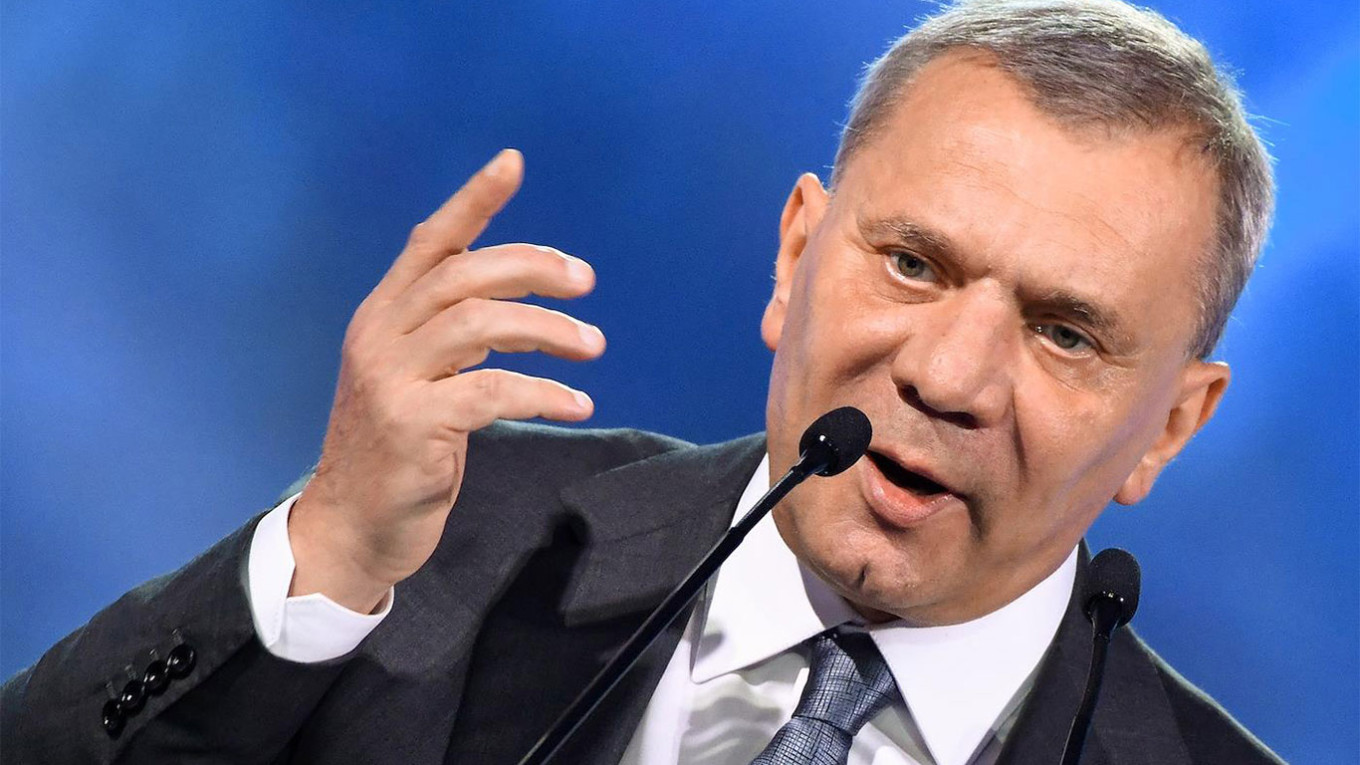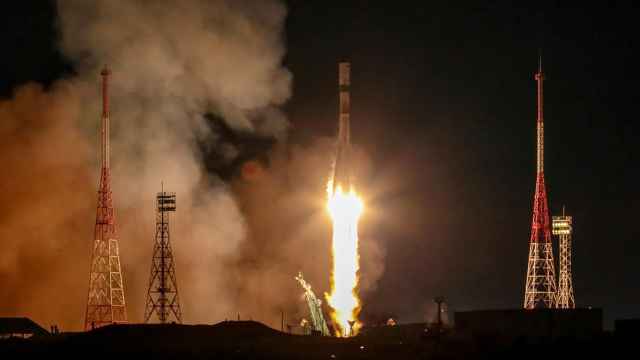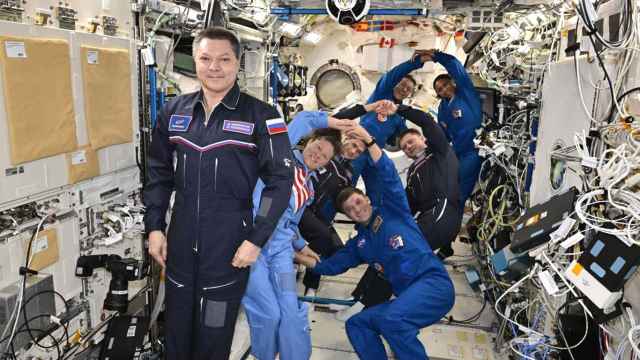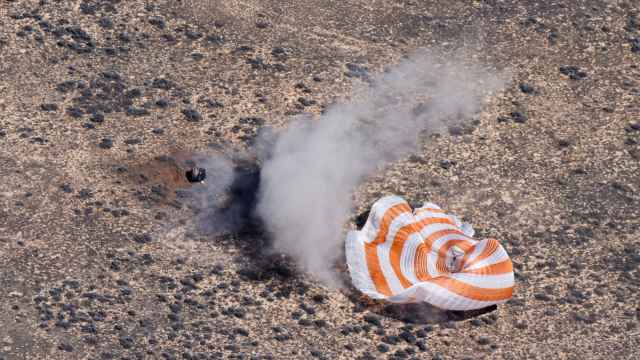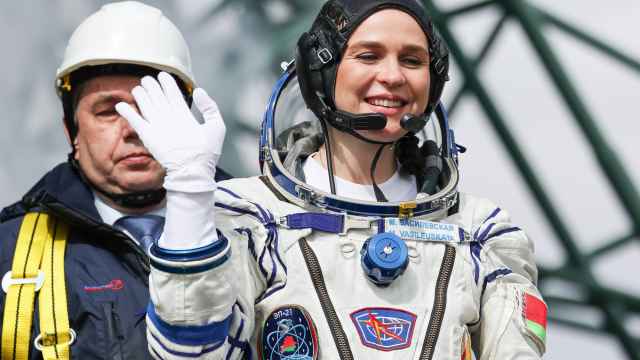The head of Russian space agency Roscosmos on Tuesday praised Russia-U.S. cooperation at the International Space Station following a major coolant leak from a Soyuz crew capsule.
"Say hello to the entire American team. They proved themselves to be very worthy in this situation and lent us a helping hand," Borisov said, speaking to the Russian crew on board the ISS. "But I hope we will manage on our own" in the future.
"You set an example for the whole world on how to work together in the most challenging and difficult situation. Let many politicians learn from you," he added, according to a transcript released by Roscosmos.
Space has remained a rare avenue of cooperation between Moscow and Washington since the start of the Russian offensive in Ukraine and ensuing Western sanctions on Russia.
The ISS was launched in 1998 at a time of increased U.S.-Russia cooperation following their Space Race competition during the Cold War.
Russian cosmonauts Sergei Prokopyev and Dmitry Petelin, as well as U.S. astronaut Frank Rubio, flew from Kazakhstan to the ISS on a Soyuz rocket on Sept. 21.
It is scheduled to bring them back to Earth in March.
The coolant leak reported on Thursday forced the last-minute cancellation of a routine spacewalk by the two Russians, and could potentially impact the return flight of the three crew members to Earth.
"I hope that the small incident that we had with the temperature control system did not affect your mood and composure," Borisov said.
"Let's hope for the completion of your mission as planned."
Roscosmos and U.S. space agency NASA said the leak from the Soyuz MS-22 spacecraft did not pose any danger to those on board the ISS.
Roscosmos said on Monday that, following an initial temperature spike inside the Soyuz capsule, it had "stabilized" at around 30 degrees Celsius.
It added that the cause of the leak was being established and that a special commission would determine whether the capsule could be used to bring the astronauts back to Earth.
Borisov said that another vessel would have to be sent to the ISS if the Soyuz MS-22 was deemed unfit for that mission.
NASA astronauts Josh Cassada and Nicole Mann, Japanese astronaut Koichi Wakata and Russian cosmonaut Anna Kikina were flown to the ISS in October aboard a SpaceX spacecraft.
A Message from The Moscow Times:
Dear readers,
We are facing unprecedented challenges. Russia's Prosecutor General's Office has designated The Moscow Times as an "undesirable" organization, criminalizing our work and putting our staff at risk of prosecution. This follows our earlier unjust labeling as a "foreign agent."
These actions are direct attempts to silence independent journalism in Russia. The authorities claim our work "discredits the decisions of the Russian leadership." We see things differently: we strive to provide accurate, unbiased reporting on Russia.
We, the journalists of The Moscow Times, refuse to be silenced. But to continue our work, we need your help.
Your support, no matter how small, makes a world of difference. If you can, please support us monthly starting from just $2. It's quick to set up, and every contribution makes a significant impact.
By supporting The Moscow Times, you're defending open, independent journalism in the face of repression. Thank you for standing with us.
Remind me later.


